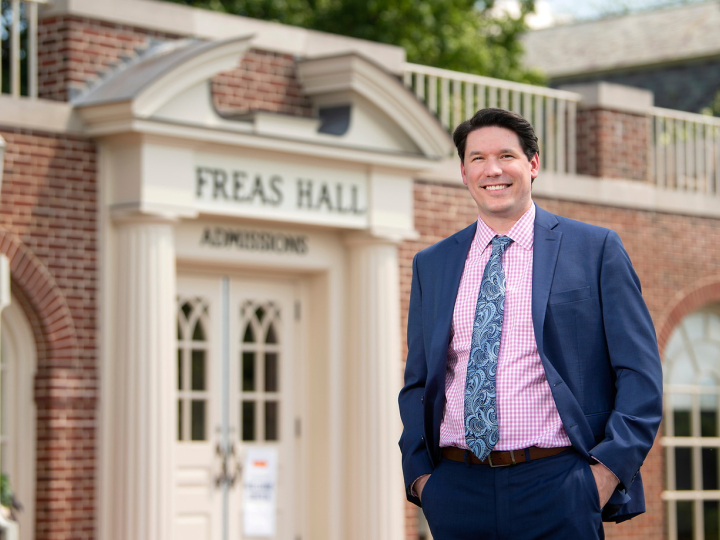Mellon Foundation Grant to Boost Bucknell Humanities
September 4, 2018
Climate change. War. Poverty. Migration.
There are no easy answers to society's most pressing issues, but this much is certain: it takes all kinds of knowledge, from many perspectives, to address these and other confounding problems.
Bucknell is betting that faculty from the Division of Arts & Humanities in the College of Arts & Sciences can bring valuable new voices to these conversations. So is The Andrew W. Mellon Foundation, which has awarded the University $743,000 to develop new curricula and support faculty and students in the pursuit of solutions to formidable challenges — ones that are urgent to younger generations anxious about the future. Also known as "wicked" problems, these confounding challenges involve many stakeholders and a high level of complexity, and frequently focus on politics, economics or the environment.
"The grant will support research on topics that students instinctively find interesting and important for the world they live in," said Karl Voss, dean of the college. "These are the things they worry about, the things they wonder about, and the things we all need to deal with to improve the world."
With the grant, the college will create new, interdisciplinary courses that add the expertise and energy of humanists and artists to a handful of confounding problems. The classes are designed to build connections to the social sciences, STEM fields and management. Implementation will begin with short-term "teach-in" courses for a quarter- or half-credit, to be followed by related "teach-out" events that take the coursework into the community, engaging broader audiences. Teach-outs would build upon the success of recent Bucknell teach-in events, held by faculty in response to contemporary issues such as race relations and the recent travel ban, which were well received by the campus and local community.
Unlike the Grand Challenges explored by Bucknell's College of Engineering, which are rooted in 14 problems identified by the National Academy of Engineering, the issues to be explored with Mellon funding are open-ended. This encourages a flexible, nimble response by humanities and arts professors to issues of the day, said Karline McLain, professor of religious studies and associate dean of faculty for the Division of Arts & Humanities, who spearheaded the Mellon proposal.
"The grant will benefit students across the University," she added, noting the humanities requirements for students in all three of Bucknell's colleges. "We want all students, no matter what their major is, to think about these problems from a humanistic perspective — and then layer that onto the information they're getting in their in-depth studies in their academic concentrations."
A Surge of Support
The Mellon grant is the latest in a string of accomplishments that strengthen the humanities at Bucknell, which include:
- The founding of the Humanities Center in 2015
- A $600,000 Mellon grant to support the humanities in 2016
- The establishment of a Humanities Council in 2014
- The opening of Hildreth-Mirza Hall, a home for the humanities, in April
- Support for digital humanities research through the Digital Scholarship Center
Curricular innovation workshops, faculty research fellowships, and funding for student undergraduate research and conference travel are also part of the Mellon grant, which will span three years, with the potential for a fourth. McLain said she hopes that work funded by the grant sparks more interdisciplinary dialogue about these complex topics — not only among faculty and students, but also across the community.
"As artists and humanists, what is our civic obligation to educate the general public as well as our own students?" she asked. "The goal is to put people in conversation, on and off campus."

